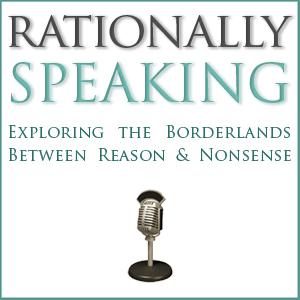
Rationally Speaking Podcast
New York City Skeptics
- 52 minutes 13 secondsIs cash the best way to help the poor? (Michael Faye)
The idea of giving poor people cash, no strings attached, is "very unappealing" for most donors, admits economist Michael Faye -- but it's still one of the best ways to help the poor. Michael and Julia discuss the philosophy behind his organization (GiveDirectly), the evidence we have so far about cash transfers as an anti-poverty intervention, and the various concerns people have about it: How long-lasting are the effects? Does it make recipients less likely to work? Does it cause inflation?
23 December 2021, 4:02 pm - 1 hour 8 minutesHumanity on the precipice (Toby Ord)
Humanity could thrive for millions of years -- unless our future is cut short by an existential catastrophe. Oxford philosopher Toby Ord explains the possible existential risks we face, including climate change, pandemics, and artificial intelligence. Toby and Julia discuss what led him to take existential risk more seriously, which risks he considers underrated vs. overrated, and how to estimate the probability of existential risk.
10 December 2021, 8:18 pm - 1 hour 7 minutesDangerous biological research - is it worth it? (Kevin Esvelt)
Kevin Esvelt, a scientist at MIT, argues that research intended to prevent pandemics is actually putting us in a lot more danger. Also discussed: Kevin's own research on engineering wild animal species. Are the risks worth the benefits?
30 November 2021, 7:54 pm - 1 hour 18 minutesWhy we're polarized (Ezra Klein)
Ezra Klein explains how Republican and Democrats in the US became so different from each other, ideologically and demographically, and why that trend + our institutions = political gridlock. Questions covered include: Is polarization necessarily bad? Has the left polarized more than the right? And what should we make of polls that seem to show Republicans and Democrats used to agree on immigration policy?
5 November 2021, 3:30 pm - 1 hour 4 minutesThe genetic lottery (Kathryn Paige Harden)
Kathryn Paige Harden, author of “The Genetic Lottery: Why DNA Matters for Social Equality” explains what scientists have learned about how our genes affect our educational success. Why is this research so controversial? And is it worth doing anyway?
15 October 2021, 2:28 pm - 1 hour 17 minutesHow to reason about COVID, and other hard things (Kelsey Piper)
Journalist Kelsey Piper (Future Perfect / Vox) discusses lessons learned from covering COVID: What has she been wrong about, and why? How much can we trust the CDC's advice? What does the evidence look like for different drugs like Fluvoxamine and Ivermectin? And should regular people really try to evaluate the evidence themselves instead of deferring to experts?
14 September 2021, 1:02 am - 52 minutes 8 seconds"Price gouging" in emergencies
Every time there’s an emergency, the prices of certain goods skyrocket -- like masks and hand sanitizer during COVID -- and the public gets angry about price gouging. In this episode, two economists (Raymond Niles and Amihai Glazer) make the case for why “price gouging” is actually a good thing, and Julia raises potential counterarguments.
19 August 2021, 2:31 am - 1 hour 2 minutesHow to be a data detective (Tim Harford)
When you see a statistic reported in the news, like "10% of University of California Berkeley students were homeless this year," how do you evaluate it? You shouldn't blindly accept every statistic you read. But neither should you reject everything that sounds surprising. Tim Harford, economist and author of The Data Detective: Ten Easy Rules to Make Sense of Statistics, talks about the heuristics he recommends using, and the mistakes people tend to make.
10 June 2021, 5:40 pm - 1 hour 1 minuteAre Uber and Lyft drivers being exploited?
How much do Uber and Lyft drivers really earn, after expenses? Are they getting a raw deal by being classified as 'independent contractors' instead of employees? I explore the debate over these questions with three guests: Louis Hyman (Cornell), Veena Dubal (UC Hastings College of the Law), and Harry Campbell (The Rideshare Guy).
9 April 2021, 8:26 pm - 1 hour 3 minutesUnfair laws / Why judges should be originalists (William Baude)
Is there any justification for seemingly unjust laws like "qualified immunity," which allows cops to get away with bad behavior? William Baude, a leading scholar of constitutional law, explores how these laws came to be and why they're so hard to change. Also, Baude makes the case for originalism, the view that judges should base their rulings on the original meaning of the Constitution. And Baude explains how rationalist principles have influenced his teaching and legal scholarship.
19 March 2021, 4:34 pm - 1 hour 16 minutesIntellectual honesty, cryptocurrency, & more (Vitalik Buterin)
Julia and guest Vitalik Buterin (creator of the open-source blockchain platform Ethereum) explore a wide range of topics, including: Vitalik's intellectually honest approach to leadership, why prediction markets appear to be biased in favor of Trump, whether it was rational to invest in Bitcoin ten years ago, Vitalik's defense of life extension research against its critics, and more.
4 March 2021, 10:22 pm - More Episodes? Get the App
Your feedback is valuable to us. Should you encounter any bugs, glitches, lack of functionality or other problems, please email us on [email protected] or join Moon.FM Telegram Group where you can talk directly to the dev team who are happy to answer any queries.
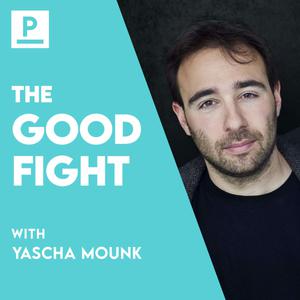 The Good Fight
The Good Fight
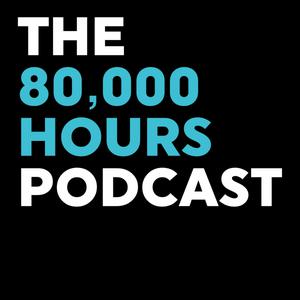 80,000 Hours Podcast
80,000 Hours Podcast
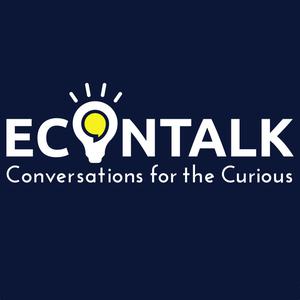 EconTalk
EconTalk
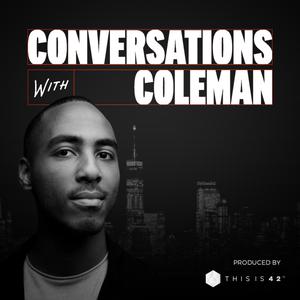 Conversations With Coleman
Conversations With Coleman
 Very Bad Wizards
Very Bad Wizards
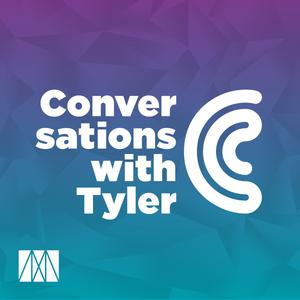 Conversations with Tyler
Conversations with Tyler